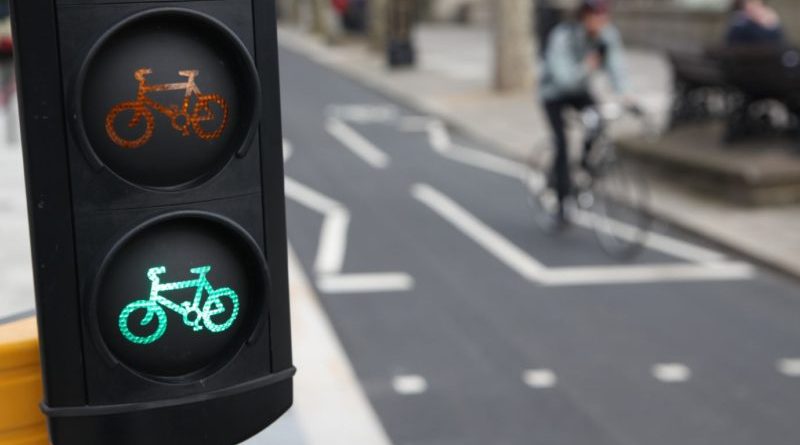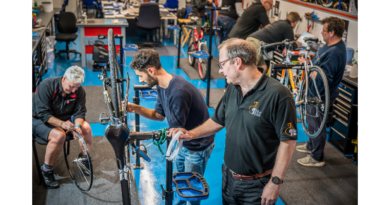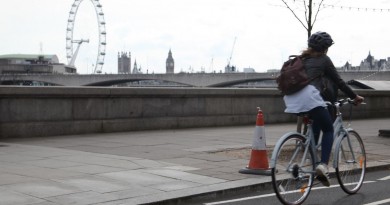Medical pros tell Government “cut car culture and budget for active travel for kids”
An evidence-based call to action by medical experts to end a “42-year trend” of car domination is gaining traction, with the authors calling on the UK Government to drive a change in transport habits.
Published in the British Journal of Sports Medicine, the authors outline the consequences of not getting tough on childhood obesity, something their studies tie to sedentary travel habits.
An accompanying letter – mailed to UK transport ministers Chris Grayling, Humza Yousaf, Ken Skates and Karan Bradley – calls for dedicated funding of “at least 10% of the national transport budgets to pay for infrastructure interventions supported by a behaviour change programme.”
This is not a new proposal having previously been presented by the Association of Directors of Public Health as long ago as 2008, endorsed by over 100 concerned academic, health, transport and other organisations.
What the latest call to action does pull into focus is the sharp decline in children’s mobility since the 1970s when statistics were first gathered.
“This reflects the fact that across these four decades politicians and highway engineers have planned for increased car use. So that is what has resulted,” write the authors. “Yet, across the same period we have accumulated much greater scientific evidence for the health impacts of this decline in physical activity. The importance of routine physical activity, such as active travel, for heart health, weight management, and mental well-being are just three of the myriad aspects of health gain which are now routinely denied to children.”
The routine investment in the roads while overlooking means to safely choose active travel is “resulting in an environment that often feels too risky for walking or cycling,” it is suggested.
The average length of a school journey has increased by nearly 100% since the 1980s to just shy of four miles in length (2013 figures). In tandem with this, parents have increasingly declared that they are afraid to let children complete the journeys by foot or bike as road safety concerns have grown.
In tandem with removing physical activity, parents are exposing children to increasingly high levels of pollution, with the authors further flagging that most are clueless about how much of that dirty air exists within the vehicle itself.
The cost to benefit ratio of active travel should, in theory, be a huge draw for politicians, believe the authors, with cycling investments shown to have a net benefit (sometimes as high as 35:1) to society. Furthermore, there’s a huge economic contribution.
“We are not starting from scratch,” says the letter. “There are locations across the UK where infrastructure provision is making it possible for more children to travel actively, although that these remain exceptions. Successful UK programmes have occurred recently, not least the Cycle Demonstration Towns and Sustainable Travel Towns programmes in England, the London Cycle Superhighways, and the Smarter Choices, Smarter Places programme in Scotland. These were shown to be highly effective and had excellent benefit to cost ratios, unlike many schemes devoted to expanding the road network capacity for the short-term benefit of car users. In Wales, the Active Travel Act 2013 has concentrated minds on what must follow if the Act is to be shown to have led to a shift in travel behaviour.”
To read the letter in full, head here.
Want to learn more about cycling’s societal impact and the countless piece of evidence available to back a case for better active travel provision? Check in with our library of data here.



